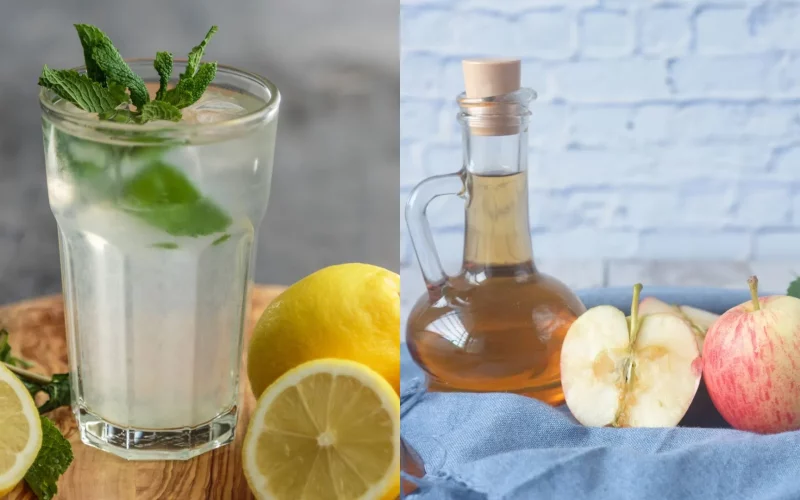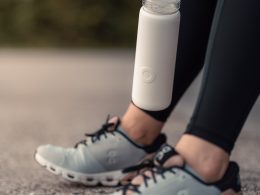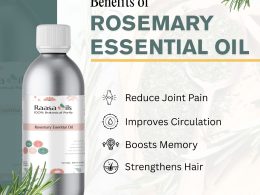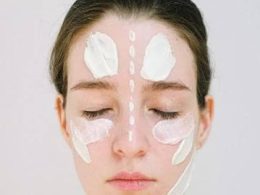DIY Dangers: How Lemon Juice to ACV Affects Your Skin
Dr. Marisa Garshick is a name synonymous with dermatology expertise. As a board-certified dermatologist, her insights have consistently paved the way for healthier, radiant skin. Dr. Garshick’s unique approach focuses on holistic DIY Skincare, incorporating natural remedies into everyday routines. In this article, we’ll embark on a journey to explore the potential risks and rewards of incorporating common kitchen staples, like lemon juice and apple cider vinegar (ACV), into your skincare regimen.
The Allure of Natural Ingredients
We live in an era where the allure of natural ingredients in skincare is undeniable. Many of us have turned to our kitchen cabinets in search of solutions to our skincare woes. It’s easy to be captivated by the idea of harnessing the power of lemon juice and ACV for their potential benefits. After all, they’re readily available, cost-effective, and appear to offer a holistic approach to skincare.
But do these kitchen staples live up to the hype, or are there hidden dangers lurking beneath the surface?

Lemon Juice: A Double-Edged Sword
Benefits:
- Brightening: Lemon juice is renowned for its ability to brighten the skin. It’s often hailed as a natural skin lightener, making it a tempting choice for those looking to reduce hyperpigmentation.
Potential Risks:
- High Acidity: The high acidity of lemon juice can be a double-edged sword. While it may exfoliate dead skin cells and brighten the complexion, it can also cause irritation, redness, and even chemical burns when used incorrectly.
- Photosensitivity: Lemon juice makes your skin more sensitive to the sun’s harmful UV rays, increasing the risk of sunburn and long-term damage if not followed by adequate sun protection.
Apple Cider Vinegar: A Trendy Tonic for Skin
Benefits:
- Balancing pH: ACV is celebrated for its potential to balance the skin’s pH level, which can help control excess oil production and reduce acne.
- Toning: It acts as a natural astringent, helping to tone and tighten the skin.
Potential Risks:
- Moderate Acidity: While less acidic than lemon juice, undiluted ACV can still be too harsh for some skin types. It’s essential to dilute it properly to avoid irritation.
- Pungent Odor: The strong smell of ACV can be off-putting for some, making it less appealing for regular use.
The DIY Dangers: Side Effects to Watch For
Both lemon juice and ACV can be potent allies in your skincare journey, but they also come with potential side effects that should not be ignored.
1. Irritation and Sensitivity: The high acidity of lemon juice can irritate the skin, leading to redness, stinging, and discomfort. ACV, although less acidic, can still cause irritation if not properly diluted.
2. Sun Sensitivity: Lemon juice, in particular, increases your skin’s sensitivity to the sun. Failing to use sunscreen can lead to sunburn and long-term damage.
3. Over-Exfoliation: The exfoliating properties of lemon juice may lead to over-exfoliation when used too frequently. This can result in a compromised skin barrier, leaving your skin vulnerable to a host of issues.
4. Allergic Reactions: Some individuals may be allergic to these natural ingredients, leading to itching, redness, or hives.
Crafting a Safe and Effective Skincare Routine
So, how can you harness the potential benefits of lemon juice and ACV without falling into the DIY dangers trap? Dr. Marisa Garshick offers some expert guidance:
1. Dilution is Key: Always dilute lemon juice and ACV before applying them to your skin. A simple rule of thumb is to mix one part of the natural ingredient with ten parts of water. This ensures that the acidity is less likely to cause irritation.
2. Patch Test: Before applying any new substance to your face, perform a patch test on a small area of your skin to check for adverse reactions or allergies.
3. Sun Protection: If you’re using lemon juice, it’s crucial to follow up with a broad-spectrum sunscreen with at least SPF 30. This is non-negotiable to avoid sun damage.
4. Moderation is Key: Less is often more when it comes to natural ingredients. Both lemon juice and ACV should be used in moderation, typically 1-2 times a week.
Lemon Juice vs. ACV: A Comparative Analysis
To help you make an informed decision, let’s compare these two kitchen staples side by side:
| Aspect | Lemon Juice | Apple Cider Vinegar (ACV) |
|---|---|---|
| Skin-Brightening | Yes, but use cautiously | Yes, when diluted |
| Potential Irritation | High | Moderate |
| pH Level | Low (acidic) | Low (acidic) |
| Ideal Usage Frequency | 1-2 times a week | 2-3 times a week |
| Benefits | – Brightens skin | – Balances pH |
| – Exfoliates | – May reduce acne | |
| – Tones skin |
Expert Advice: Dr. Marisa Garshick’s Top Tips
Before concluding our exploration of DIY skincare using lemon juice and ACV, here are some valuable insights from Dr. Marisa Garshick:
- “Remember that natural doesn’t always mean safe. Even though these ingredients come from your kitchen, they can still harm your skin if used recklessly.”
- “Consistency is key in skincare. If you choose to incorporate lemon juice or ACV, be patient and give your skin time to adjust.”
- “Never use these ingredients on open wounds, cuts, or broken skin. Always prioritize your skin’s health and safety.”
Conclusion: Navigating the DIY Skincare Landscape
As you embark on your DIY skincare journey, guided by the expertise of Dr. Marisa Garshick, you’ll be better equipped to make informed choices. While lemon juice and ACV offer potential benefits, they also come with significant risks if not used correctly. Remember that skincare is a highly individualized journey, and what works for one person may not work for another. Always prioritize your skin’s health and safety, and consult with a dermatologist if you have any concerns.
In the quest for radiant and healthy skin, balance and knowledge are your most potent allies. With the right information and responsible use, you can harness the power of natural ingredients without falling prey to the DIY dangers that lurk in the shadows.












